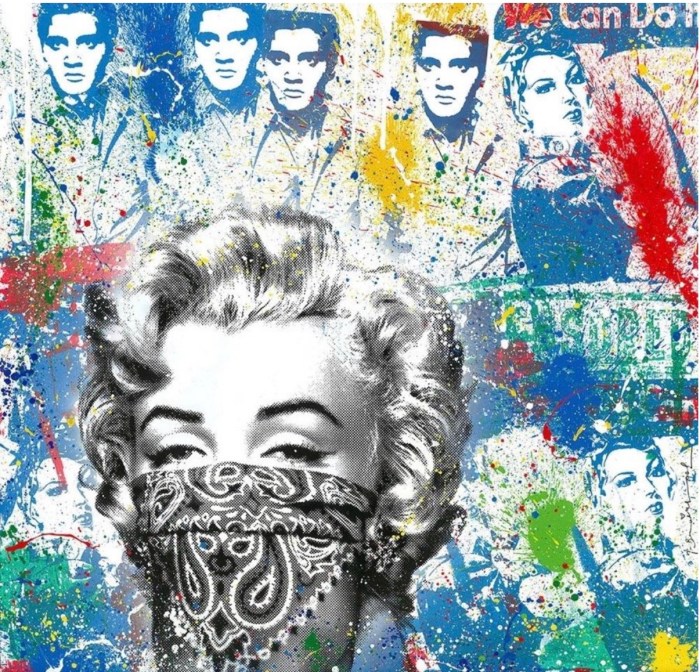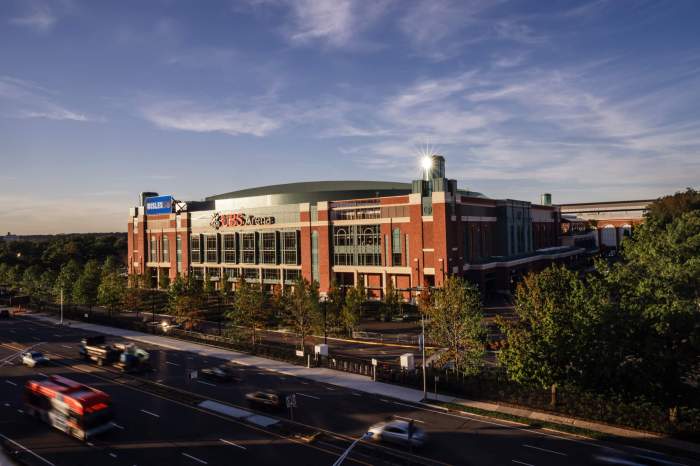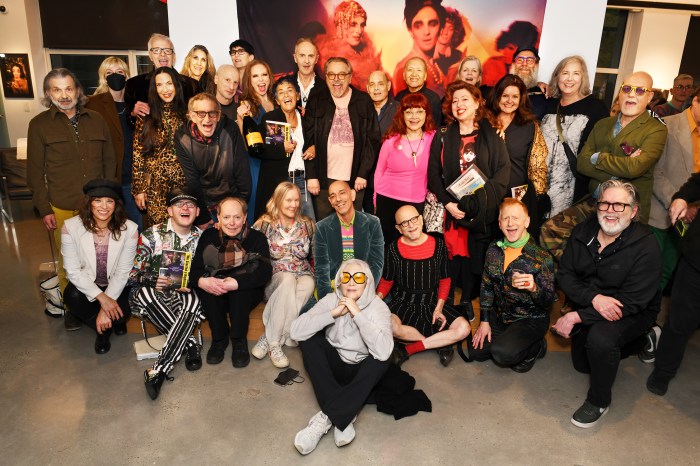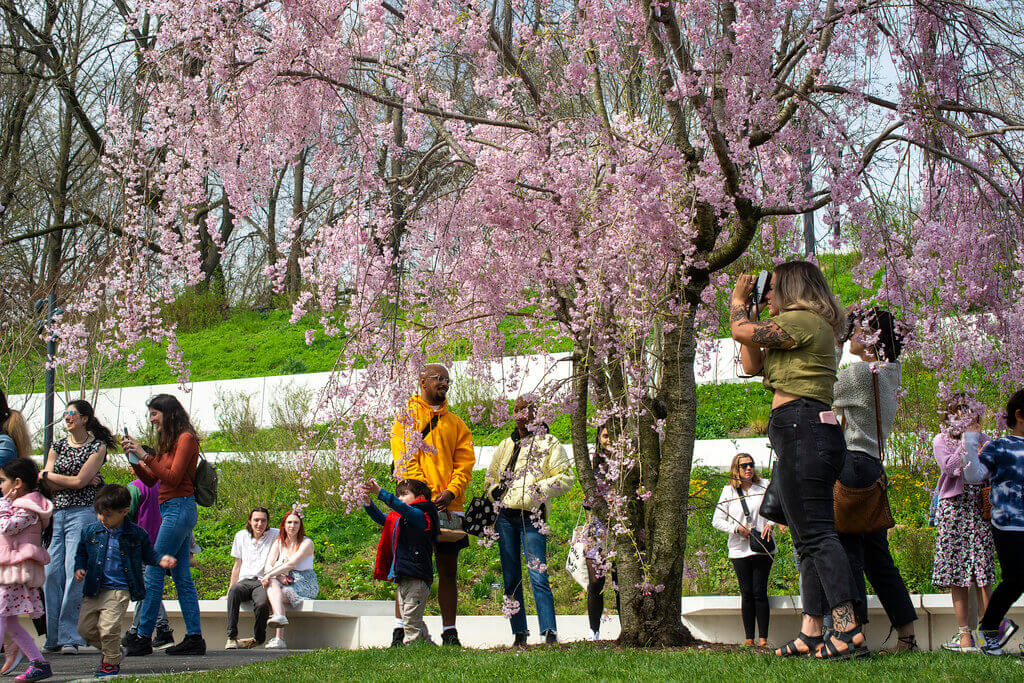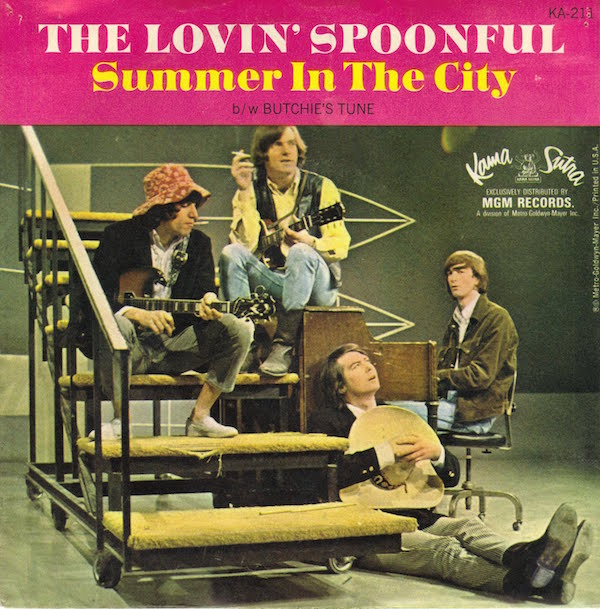
BY JIM MELLOAN | When the days in New York City become particularly sweltering, it’s not too unusual for many boomers to hear in their heads a certain catchy piano riff, followed by the phrase “Hot town — summer in the city; back of my neck gettin’ dirt and gritty.”
The song, by The Lovin’ Spoonful, went to No. 1 on the Billboard Hot 100 50 years ago this Saturday, Aug. 13. It was the only No. 1 hit for the group. For me, growing up in the not-very-mean streets of suburban New Jersey, just 20 miles away, the song was memorably evocative of urban life in the summer, sweating through the days and chasing girls at night, promising a future of teens-and-20s tribulations and delights — “Come on, come on, and dance all night; despite the heat it’ll be all right.”
The Spoonful’s leader and principal songwriter, John Sebastian, is a product of Greenwich Village. His father, John Sebastian Sr., was a professional classical harmonica player, an unusual vocation to say the least. He was widely regarded as the best in the world at his job, and many composers wrote scores specifically for him.
John Sebastian Jr. started playing guitar in his early teens, and was appearing on recordings by jug bands and other folkie offshoots by the early ’60s. He met guitarist Zal Yanovsky, the clown of the group, through Mama Cass and Denny Doherty, who went on to become half of The Mamas & the Papas. The three, plus Sebastian, ever so tangentially, had been members of a New York City group called The Mugwumps. Yanovsky was a Jew from Toronto whose dad was a Communist and whose mother died of cancer early on. After high school Yanovsky had bummed around Canada homeless for a couple of years, with a brief stint at a kibbutz in Israel, before moving to DC and then to New York.
Drummer Joe Butler was from Long Island, and bassist Steve Boone’s family had settled there early on. When Sebastian and Yanovsky were looking to complete the band, they rejected Stephen Stills and Neil Young; Sebastian also declined to tour with Bob Dylan as he put the band together. The name The Lovin’ Spoonful came from a song called “Coffee Blues” by Mississippi John Hurt, whom Sebastian had gotten to know. Lyrics include “I wanna see my baby ‘bout a lovin’ spoonful” — a reference to cunnilingus.
One of the Spoonful’s early venues was a place called The Night Owl Cafe (118 W. Third St., btw. MacDougal & Sixth Ave.). After a couple weeks they were thrown out because they just weren’t that good. They moved to Cafe Bizarre, down the street, and got better. Eventually the Night Owl wanted them back, and promoted them big time.
After the Spoonful’s initial success, they were considered as the basis for the show that would eventually become The Monkees. But the idea smelled too prefab for the band.
The Spoonful had four Top 10 hits before “Summer in the City”: “Do You Believe in Magic,” “You Didn’t Have to Be So Nice,” “Daydream,” and “Did You Ever Have to Make Up Your Mind.” All four were by Sebastian; the last two both went to No. 2 on the chart. In early 1966, the band supplied the soundtrack for the first film Woody Allen did as a writer: “What’s Up Tiger Lily?”; the one in which they took an existing kitschy Japanese spy flick and dubbed a completely different, silly script in English about a recipe for egg salad.
“Summer in the City” marked a turn from the poppy sweetness of the band’s early hits to a harder, rocking sound. Its kernel originated with Sebastian’s younger brother Mark, who was 14. He left a tape of a song he had composed for John before he went to visit their dad in Italy. It was more from a kid’s point of view, talking about stickball games, but the “chorus” Mark came up with survived with the music intact (“But at night it’s a different world…”). John wrote new verses, starting with “Hot town…” Bassist Boone contributed the piano lick, played on a Hohner pianet, and drummer Butler came up with the surreal lyric “wheezin’ like a bus stop.” This level of collaboration was unusual for the Spoonful. At some point the song brought to Sebastian’s mind Gershwin’s “An American in Paris” and its onomatopoetic horns. He wanted to bring that feel to the recording. The group hired a “funny old sound man” from the old-time radio days who had a bunch of acetate discs of sound effects; they listened for hours to choose what they wanted. The sounds of honking horns and jackhammers completed the urban soundscape.
“Summer in the City” was a high point for the group. Yanovsky was fired from the group in 1967, Sebastian left in 1968, and in 1969 the Spoonful disbanded. Sebastian made his first appearance as a solo artist on a January 1969 TV special hosted by Cass Elliot, and in 1976 had a huge hit with the theme song to “Welcome Back, Kotter.” The group was inducted into the Rock and Roll Hall of Fame in 2000.
In the early ’70s, record companies were sending a lot of review copies of albums to The Wall Street Journal, where my dad worked, even though the paper did not review records at the time. My dad brought many of them home, enriching our education on contemporary (usually failed) commercial music. One of these records, a favorite of mine, was a 1971 reissue of Yanovsky’s 1968 solo album “Alive and Well in Argentina.” The title track was a countrified rocker about all the most famous Nazis doing fine in the Argentine. The Spoonful often referred to their music as “good-time music.” Yanovsky continued the tradition in his own special way.
Jim Melloan is a writer, actor, musician, and editor. His radio show (“50 Years Ago This Week”) airs Tuesdays, 8–10pm on RadioFreeBrooklyn.com.










